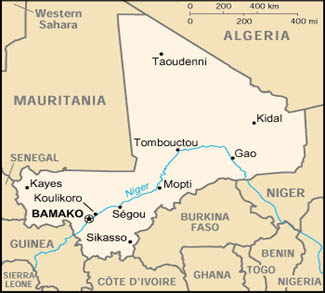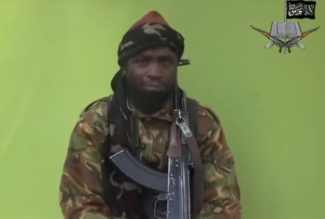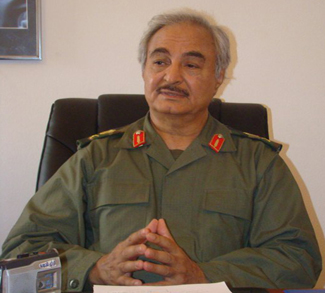FORECAST
This forecast aims to push through the rhetorical hyperbole on both sides of the Afghanistan debate, and in doing so provide an objective assessment of what an early NATO exit would entail.
Last week, NATO Secretary General Anders Fogh Rasmussen warned that a premature exit from Afghanistan would allow Al Qaeda to unleash a new ‘global jihad’ on the West. The alarmist tone in his statement is no doubt intended to give pause to those considering an early exit from Afghanistan. However, it is an assessment more influenced by the need to drum up a sense of urgency among NATO countries than the reality of a post-NATO Afghanistan.
The current state of the civilian government in Kabul makes civil war extremely likely in the event of an abrupt NATO exit. The Afghanistan National Army (ANA) boasts 94,000 troops, but only half of them are combat-ready and the desertion rate stands at a staggering 20%. Such high numbers of troops abandoning their posts while NATO forces are still on the ground suggests that any loyalty towards the Constitution and the government in Kabul will collapse when faced with the Taliban’s religious appeal and ability to wage a long-term guerrilla war.
The Karzai government is too corrupt, ineffective, and foreign to put up much of a fight in any Afghan civil war. The Taliban toppled the Mujahedeen government in 1996, and there’s no reason to believe they wouldn’t be able to pull it off again.
If the Taliban do eventually re-take Kabul, their relationship with Al Qaeda will be a big question mark. The Taliban cannot completely wash their hands of Al Qaeda because of ideological factors. To do so would dilute the purity and appeal of their religious message. However, questions remain over a rift between Mullah Omar and Al Qaeda leading up to 9/11. According to some accounts, the Taliban were not only unaware of the impending 9/11 attacks, but would also be wholly against them because of the harm they would inevitably do to the Taliban’s national project in Afghanistan. Richard Barrett, head of the UNSC Taliban Monitoring Team, has gone so far as to characterize the relationship between Al Qaeda and the Afghanistan Taliban as ‘fragile.’
All questions of strife aside, it is almost certain that Al Qaeda would enjoy some degree of sanctuary in a Taliban-controlled Afghanistan. But, since the terrorist organization can already operate relatively freely in the Pakistan FATA, Somalia, and elsewhere, a new sanctuary in Afghanistan – one where it would often rain U.S. drone strikes – would not consequently give rise to a ‘global jihad’.
A Taliban government would have incentive to drop some of its more extreme policies. Currently, the Taliban is drawing in supporters from the more moderate strata of Afghan society, people who are fed up with the civilian government in Kabul and foreign troops on Afghan soil. To keep them, the Taliban would need to succeed where Kabul has failed and provide some semblance of economic stability.
Since opium already flows out of Afghanistan, funding criminal and terrorist networks the world over, there’s not much more harm a NATO exit could do on the drug front. According to a UN report, Afghanistan’s opium production has already exceeded global demand, forcing drug traffickers to stockpile it to keep market prices high. These hidden stockpiles in the Afghan-Pakistan border could reportedly feed the world’s heroin addiction for over two years.
Interestingly, drugs are one case in which the pendulum of the Taliban’s religiosity swung two ways. In May 2001, an envoy from America’s Drug Enforcement Agency returned from Afghanistan praising the Taliban’s ban on poppy cultivation, which had almost annihilated the entire crop and opened the door for American farming aid. Ironically, it is the Taliban who has had the most success shutting down opium production in a short amount of time.
As the debate over NATO’s future course in Afghanistan continues to unfold, all participants should bear in mind the reality of the national interests at stake. A premature exit would mean civil war and the rise of a human rights violator in the same vein of Iran and Saudi Arabia. It would not however unleash of a global wave of terrorism.
SUMMARY OF EVENTS: November 16 – 23, 2009
WORLD
The dollar fell on Monday as China accused the United States of increasing protectionism and following unexpectedly strong Japanese economic growth figures, pushing gold prices to a record high point.
NORTH AMERICA
Canada
Senior Canadian military and government officials ignored evidence that Afghan authorities were torturing detainees handed over by Canada’s troops and then tried to silence those who raised the alarm, a senior diplomat said on Wednesday.
The Canadian government is dismissing calls for a public inquiry into the alleged torture of prisoners handed over by Canadian soldiers in Afghanistan.
United States
The CIA has funneled hundreds of millions of dollars to Pakistan’s intelligence service since the Sept. 11 attacks, accounting for as much as one-third of the foreign spy agency’s annual budget, current and former U.S. officials say.
The United States voiced opposition Monday to unilateral Palestinian moves to seek recognition for an independent state, saying negotiations with Israel were the best way forward.
Worried that the Army may have missed red flags about the alleged shooter in the Fort Hood massacre, the Pentagon will likely launch an inquiry into how all the military services keep watch on other volatile soldiers hidden in their ranks, officials said Tuesday.
The top U.S. military officer in Iraq warned on Wednesday of attacks in the run-up to an expected January general election and said he would ask Washington to alter troop drawdown plans if necessary.
A U.S. government report has warned that China is increasing espionage against the US as the rising Asian power invests in cyber warfare along with stepping up its recruitment of spies.
CENTRAL AMERICA & THE CARIBBEAN
Honduras
The Honduran parliament will decide on December 2 whether ousted President Manuel Zelaya should be reinstated, congressional leader Alfredo Saavedra said.
SOUTH AMERICA
Chile
Chile’s President Michelle Bachelet on Tuesday condemned as haughty and offensive comments by Peru’s leader Alan Garcia over a spy scandal that has stirred century-old tensions between the neighbors.
Colombia
Colombia will not be provoked into armed conflict with Venezuela despite its neighbor’s aggressive rhetoric and dynamiting of two border bridges, Colombia’s defense minister said on Friday.
Colombia has warned that its military forces are on “maximum alert” and prepared to defend the country against any attack, amid rising tensions with Venezuela.
Ecuador
Tens of thousands of Amazonians are suing Chevron, the American oil company, for poisoning their waterways in what is billed as one of the biggest environmental cases in history.
Peru
Peruvian President Alan Garcia has criticized Chile for allegedly running undercover operations in Peru in order to undermine the country’s sovereignty.
Venezuela
Venezuelan soldiers on Thursday blew up two makeshift foot bridges that stretched across the border to Colombia in the latest incident to stoke a diplomatic dispute between the Andean neighbors.
WESTERN EUROPE
EU leaders chose Belgian Prime Minister Herman Van Rompuy Thursday as the European Union’s first president, diplomats said, after Britain dropped its backing for Tony Blair.
Britain
Gordon Brown Monday night raised the prospect of agreeing a timetable for international withdrawal from Afghanistan, in a speech in which he claimed that almost half of al-Qaida’s leadership had now been killed.
MI5, MI6 and the police will be able to withhold evidence from defendants and their lawyers in civil cases for the first time, the high court ruled Thursday.
The “appalling” errors that contributed to Britain’s failure in Iraq are disclosed in the most detailed and damning set of leaks to emerge on the conflict.
Switzerland
U.S clients of UBS with more than 250,000 Swiss francs (165,641 euros, 248,040 dollars) in assets could have their details turned over to US tax authorities if there is proof of fraud, Swiss authorities said on Tuesday.
EASTERN EUROPE
Lithuania
Lithuania hit back Thursday over new claims that the Baltic state had hosted a secret CIA facility allegedly used to interrogate Al-Qaeda suspects.
Russia
Russia and Ukraine will not face another gas crisis during New Year holidays as both countries pledged to fulfill their obligations on gas transit to Europe, Russian Prime Minister Vladimir Putin said.
MIDDLE EAST
Iran
The United Nations’ nuclear watchdog is concerned that Iran’s belated revelation of a new uranium enrichment site may mean it is hiding further nuclear activity, an agency report said Monday.
Iran’s foreign minister on Wednesday said his country would not export its enriched uranium for further processing, effectively rejecting the latest U.N. plan aimed at preventing Tehran from building nuclear weapons.
Senior officials from six world powers said on Friday they were disappointed Iran had not accepted proposals intended to delay its potential to make nuclear bombs, and urged Tehran to reconsider.
Iran on Sunday began large-scale air defense war games aimed at protecting the country’s nuclear facilities against any possible attack, state television reported.
Iraq
Iraq’s vice-president has vetoed part of the country’s new election law, placing plans for holding general elections in January in jeopardy.
Israel
Israel has given the go ahead for the construction of 900 housing units in occupied East Jerusalem, rebuffing a reported US request that it block construction at the Gilo settlement, officials have said.
Palestinian Territories
Palestinian President Mahmoud Abbas has said presidential and legislative elections scheduled for January will be postponed, confirming that he has accepted advice not to hold the vote.
Turkey
Herman Van Rompuy’s appointment as the first European Union president provoked fears in Turkey that he might hinder Ankara’s hopes of joining the bloc, with some media declaring outright that he is anti-Turkish.
EAST ASIA
China
U.S. President Barack Obama and China’s Hu Jintao Tuesday pledged to apply their joint political might to the world’s toughest problems, but friction was evident on Tibet, economics and Iran.
SOUTH ASIA
Afghanistan
Taliban insurgents have launched a fresh round of attacks on military and civilian targets in Afghanistan, ahead of President Hamid Karzai’s inaugural ceremony scheduled on Thursday.
The Afghan minister of mines accepted a roughly $30 million bribe to award the country’s largest development project to a Chinese mining firm, according to a U.S. official who is familiar with military intelligence reports.
Withdrawing from Afghanistan too quickly would allow al-Qaeda to return and launch a “global jihad” against the West, the head of NATO has warned.
Hamid Karzai was sworn in for a second presidential term Thursday, winning Western praise with a promise to combat corruption and to put Afghan troops in charge of security within five years.
India
Indian nuclear power plants have gone on alert as authorities tighten security following intelligence about possible terrorist attacks on the centers.
Pakistan
A suspected U.S. missile strike killed at least eight militants Friday in northwestern Pakistan, officials said, the second attack this week in an area believed to hold many insurgents who fled from an army offensive elsewhere in the Afghan border region.
Philippines
Philippine troops killed a senior commander of al-Qaida-linked Abu Sayyaf militants wanted for kidnappings and bombings amid an ongoing offensive, the military said Friday.
AFRICA
Yemen
The United Nations has called on Yemen to investigate allegations of unlawful killings and torture committed by its security forces in the north of the country.
Zimbabwe
Zimbabwean Prime Minister Morgan Tsvangirai left Thursday for North Africa, where analysts said he would meet Libyan leader Muammar Gaddafi to maintain political pressure on President Robert Mugabe to honor their power-sharing accord.
Zachary Fillingham is a contributor to Geopoliticalmonitor.com



